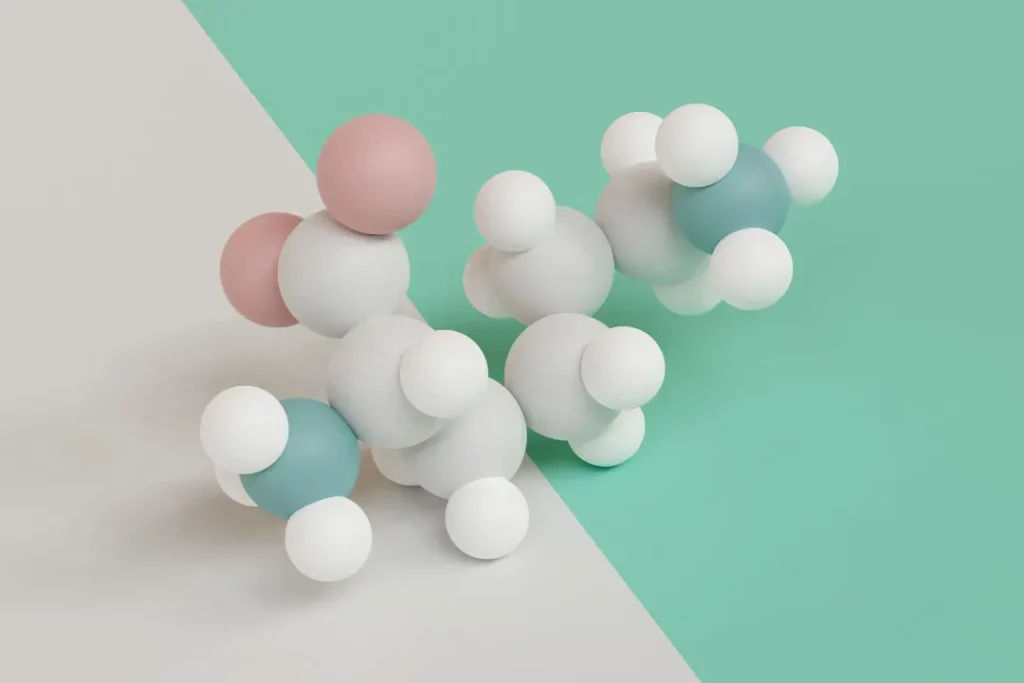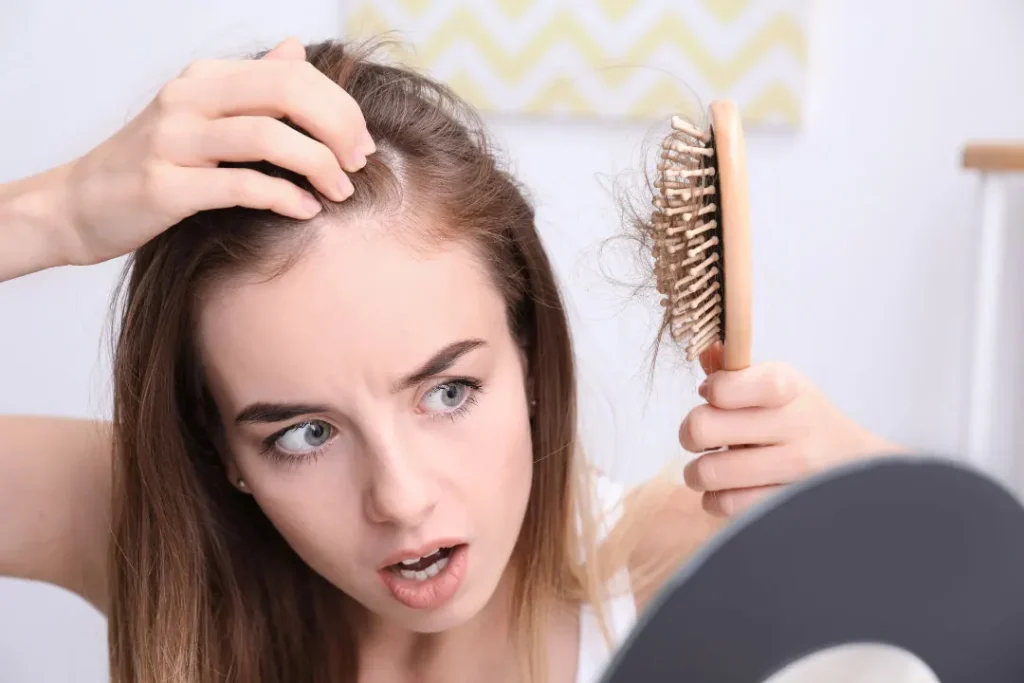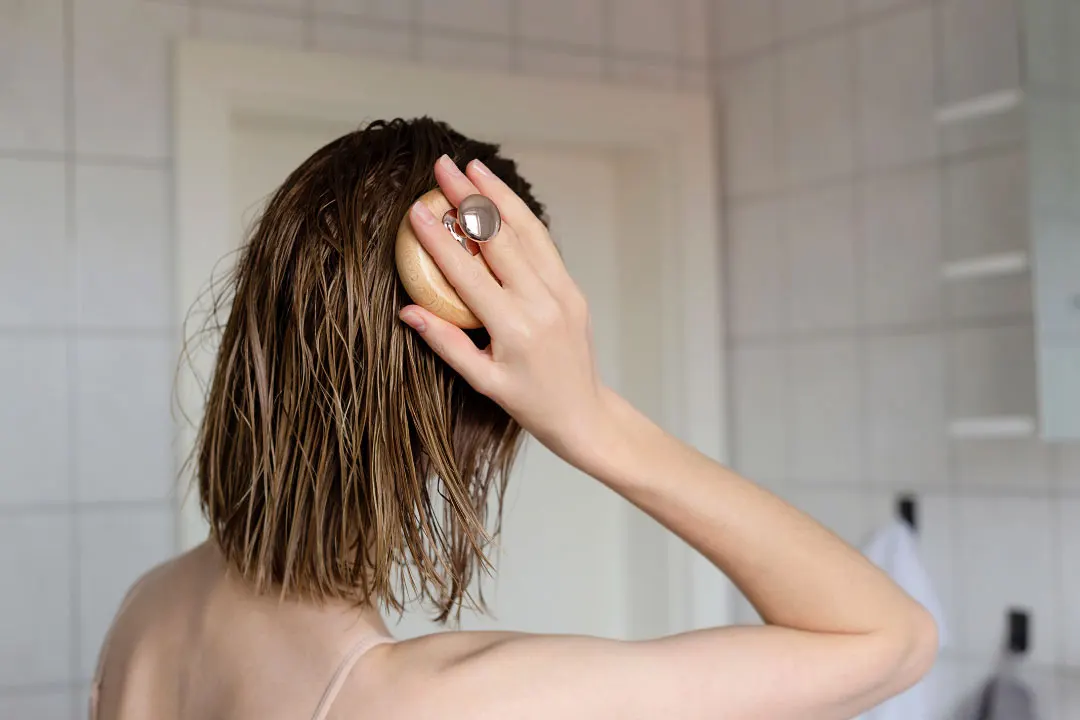Peptides have been investigated for their potential to promote hair growth, with promising results. We’ll discuss five reasons to try peptides for hair growth, and recommend one of the best hair growth brands on the market.
Hair holds deep significance across numerous cultures and religions, not to mention the personal meaning it may have for individuals. Sikh men and Muslim women typically wear turbans and hijabs, as they consider it important to keep their hair covered in public. Some indigenous cultures believe their hair is sacred, connected to nature, and should not be cut. In Asian cultures, hair maintenance is part of cultural identity, akin to festive traditions.
So, when people experience hair loss, regardless of its cause, it becomes much more than pulling away fallen locks. For some, it leads to a loss of confidence and can result in social withdrawal, prompting them to spend substantial amounts of money looking for a solution.
Recent research has explored the potential benefits of using peptides for hair growth. Peptides are short chains of amino acids, which are the building blocks of proteins in the human body. Peptides are shorter in length compared to proteins, consisting of two to 50 amino acids. In supplemental or pharmaceutical form, peptides are generally considered easier for the body to absorb than proteins due to their smaller size.
You May Also Like:
Hometown Hero CBD vs Joy Organics CBD
Eagle Hemp CBD Gummies vs. Joy Organics CBD Gummies
Collagen is one of the most abundant proteins in the body, providing structure, strength, and support. In skincare, collagen has gained popularity due to its role in supporting cell growth and skin health. Some research suggests collagen peptides — the chains constituting collagen proteins — may offer similar benefits for hair health. Read on to learn more about how peptides help with hair growth. However, if you’re experiencing hair loss or alopecia, be sure to consult with your doctor or a dermatologist for appropriate treatment plans.
The science behind peptides for hair growth
Collagen peptides have the potential to promote hair growth and contribute to overall hair health. Keratin, the main protein that forms hair, shares certain amino acids with collagen. Thus, providing your body with more of these amino acids may aid in maintaining healthy hair.
When collagen is consumed, whether from supplements or natural sources, the body breaks it down into amino acids that can then be used for protein production. However, as we age, the collagen levels in our body gradually decrease, usually beginning in our early twenties. This decline in collagen levels is associated with signs of getting older, such as the formation of wrinkles or weakened joints. Adding collagen peptides may help replenish collagen levels in the body.
It’s important to note that collagen and peptides themselves do not directly impact hair growth. Rather, they play a role in supporting hair follicle health, creating favorable conditions for these follicles to grow long and healthy.

Peptides for hair growth:
Fighting damage
While research on this topic is limited, a few studies have looked at how peptides may help combat free radicals. Free radicals are unstable molecules created as byproducts during normal cell production — in this case, during protein synthesis. As free radicals build up, they can cause damage to other molecules, like DNA and proteins, thereby increasing the risk of developing cancer or other diseases.
Peptides also possess antioxidant properties that help prevent or delay cell damage. Because of this, peptides may help keep hair or skin cells healthier for longer. However, most experts agree that more research is required to precisely determine the extent of peptides’ benefits.
Peptides for hair growth:
Minimal side effects
Typically, peptides for hair growth have minimal likelihood of causing adverse side effects, which is good news for anyone considering taking them as supplements. However, some oral peptide formulations are likely to be combined with other ingredients and vitamins, which may pose potential health risks for certain individuals. Some herbal extracts can also interact with prescription medications.
Peptides for hair growth:
Nourishing hydration
When peptides are applied topically, such as through shampoos or creams, they have the potential to revitalize your hair and scalp by providing hydration. These products can create a film-like layer on the skin, reducing water loss and providing additional protection.
Some people may avoid hydrating their hair, fearing it’ll become oilier or heavier. However, proper hydration actually strengthens the hair, minimizing the occurrence of split ends and breakage. When combined with specifically designed peptides, this hydration and nourishment may contribute to longer and stronger hair growth.

Peptides for hair growth:
Suitable for most individuals
Regardless of your hair type, color, or texture, peptides may be helpful to your scalp. Since collagen and keratin are composed of similar amino acids found naturally in the human body, most peptide treatments can be used by everyone — including people with dyed hair.
However, certain hair types may benefit more from peptide treatments, especially those with dry, damaged, or thinning hair. It’s also important to note that while extremely uncommon, it is possible to be allergic to the peptide treatment. Most peptides are extracted from bovine (cattle) or marine sources.

Peptides for hair growth:
A promising approach
Several companies have created topical products that incorporate peptides, such as More Hair Naturally. The company’s primary goal is to help people feel more confident about themselves and enhance their quality of life, enabling them to make a positive impact on the world. The company also offers a free hair loss consultation to help people in creating a treatment plan specific to their bodies and needs.
“We want to set everyone up to succeed. We need to know where people are at, so we can establish realistic expectations,” states CEO Mahryah Shain. “We’re very proud of our products, and we’re very proud of the uniqueness of them. We’re proud of the fact that they’re not going to harm you. They’re going to help your life and enhance your well-being.”
The products offered by More Hair Naturally utilize an all-natural solution that includes peptides that help support collagen production to encourage healthy hair growth. They also incorporate stem cells, which are cells that have the capacity to differentiate into various types of cells. These are specially selected cells with properties formulated to benefit the hair; for example, Capixyl™ is a specific peptide that inhibits DHT, a hormone that may contribute to hair loss.
The synergistic combination of these ingredients works to encourage healthy cell and protein production in the hair and scalp while also providing protection against free radicals.

Peptides for hair growth:
Final thoughts
Hair growth is not just about getting your hair back. It’s about regaining confidence and, for some, reconnecting with their cultural identity. Promising new technologies and research breakthroughs offer hope of combating hair loss at its source. While peptides for hair growth are an emerging topic, they may have helpful qualities with minimal associated risks, making them worth considering for stimulating hair growth. Nevertheless, it is advisable to consult with a doctor before starting any new treatment.
Further reading:
Cleveland Clinic: Collagen
National Library of Medicine: The structure of people’s hair
Byrdie: Collagen Peptides for Hair: Benefits and How to Use
LiveScience: Does collagen help hair growth?
Verywell Health: Why Your Collagen Depletes With Age
Important Note: The information contained in this article is for general informational purposes only, and should not be construed as health or medical advice, nor is it intended to diagnose, prevent, treat, or cure any disease or health condition. Before embarking on any diet, fitness regimen, or program of nutritional supplementation, it is advisable to consult your healthcare professional in order to determine its safety and probable efficacy in terms of your individual state of health.
Regarding Nutritional Supplements Or Other Non-Prescription Health Products: If any nutritional supplements or other non-prescription health products are mentioned in the foregoing article, any claims or statements made about them have not been evaluated by the U.S. Food and Drug Administration, and such nutritional supplements or other health products are not intended to diagnose, treat, cure, or prevent any disease.

